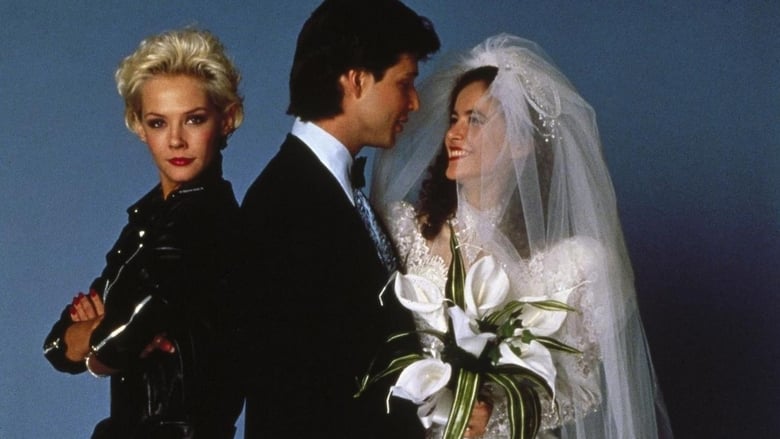


As Stephi, Hope reads dialogue as if she were having a candid conversation with her friends and has a smile to die for. Leslie Hope (who, back in the day, was soon to be seen in Oliver Stone's "Talk Radio" and with Matt Dillon in "Kansas") is the titanic supporting structure of this film. His Travis is a fine character study of a young man old enough to grow a mustache but young enough to look silly with one. Newbern as Travis is a crackerjack leading man, at turns funny and serious and always willing to expose himself to the audience. George Newbern and Leslie Hope, the stars, are two accomplished players who should have gone further in the nearly 30 years since "It Takes Two" was first released. Travis' pursuit of his male fantasy turns into a male nightmare that somehow ends kind of dreamy, thanks to the efforts of writers Richard Christian Matheson (son of Richard Matheson) and Thomas Szollosi.īack in 1988 when I first saw (and reviewed) "It Takes Two," I felt that I had discovered some remarkable, attractive new talent. (It's a sly touch that the autoplex where Jonni works is named Emerald Motors.) The sales clerk, a blonde named Jonni, is the kind of woman that Travis saw only in his dreams and she takes him for a ride in more ways than one. So while Stephi prepares for the big wedding, which is only 46 hours away, Travis goes to Dallas, aptly Oz-like in his eyes, to buy his car. Their fights are actually a kind of mutual criticism, very realistic, and as most married couples know, they are sometimes the only road to accommodation - torturous, painfully introspective but necessary. When he announces that he wants to invest most of his hard-earned money in a fancy Tovare, advertised as an American imitation Lamborghini, and that he plans to go to Dallas right before their wedding to buy one, Stephi goes along with him, but only after a few fights. Stephi is spoiled, a bit self-centered and something of a nag, but (thanks to some three-dimensional playing here) you just know how much she caares about Travis and how she only wants to make him happy. (They're both virgins.) He has dreams of fancy cars and panting blondes, dreams followed by nightmares of Stephi locked inside his queasy stomach - dressed in her wedding gown. Travis has never been to a big city and has never owned anything fine, anything to call his own, and has never been with anyone except Stephi - and he hasn't really been with her. Travis and Stephi are absolutely crazy about each other and, what's more, they were made for each other. Travis' family breeds horses and is strictly lower middle-class, while Stephi's dad, "Bull" Lawrence (the name says it all), is admired as the local "manure mogul." Travis Rogers and Stephi Lawrence have lived in Waxahachie, Texas, all their lives, on their families' respective farms. The man and the woman here are essentially kids, just barely out of high school.

And, as in most romantic comedies, the man and woman here are each outraged by (and attracted to) an element in the other's character. It's the familiar battle of the sexes and, although the film comes with an undeniable '80s feels, it has a sweet, unpretentious touch that's ageless. Men here, represented by the groom-to-be, are painted as dreamers, while women, in the form of his sweetheart and future wife, are seen as realists. Set on the eve of a wedding, "It Takes Two" deals with what men ostensibly want (hot cars and hotter women, and lots of them) and what women want (love and a security that might be restricting). Which exactly describes "It Takes Two." But it was too late for Beaird's film. In 1989, Steven Soderbergh's "Sex, Lies and Videotape" would become the darling of film festivals and would open the door for small, edgy films dealing with real-life man/woman issues.

"It Takes Two" was ahead of its time by just a few months. It is very much an independent film but no one grasped that back in '88, largely because of unfortunate timing. It was half-heartedly released (by United Artists, then on its last leg) and casually dismissed by critics (that is, those who bothered to see it). There is an inclination to call this a lost film but, the fact is, this is a movie that was never found in the first place. David Beaird's "It Takes Two," from 1988, is an unusually accomplished and knowing little film, at once enchantingly funny and shrewdly observed.


 0 kommentar(er)
0 kommentar(er)
